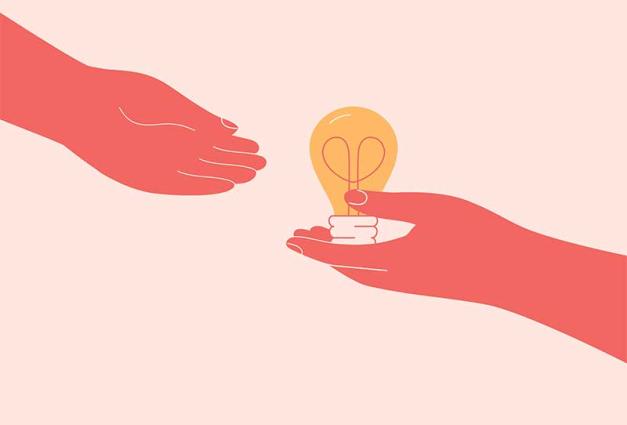Feelings of embarrassment are often unavoidable, occurring in situations for reasons beyond our control. We poke fun at someone’s dress at a cocktail party, only to find that the person is standing behind us and has heard everything we have said. We give a lecture in class and find near the end of the hour that our fly is open. We can’t remember the name of someone we have to introduce to a friend. We purchase weight-loss pills and find that the individual at the check-out counter is immensely overweight. These and many other events are embarrassing.
Note, however, that behaviors bring about embarrassment only if they are observed by someone who is likely to consider the behavior foolish or socially inept. Suppose that after an embarrassing incident, you meet someone who is unaware of the incident or the conditions surrounding it. Then, there is no objective reason to be embarrassed, and so the incident might be expected to have little or no impact on your behavior.
In fact, however, such embarrassment-eliciting events can impact us in a later situation, even though the persons with whom we are now interacting are completely unaware of the events. We call this phenomenon “incidental embarrassment.”
Why Does Embarrassment Have Such Lingering Impact?
Our research provided an answer to this question. We based our thinking on our work in the marketing domain. There, we found that a female customer was typically more willing to interact with a salesperson of the opposite sex, and interacted for a longer period of time, if the person was physically attractive. When the customer felt apprehensive about her ability to present herself to the person in a positive light, however, she was less willing to interact if the person was attractive.
This gave us a clue about the causes of incidental embarrassment. When individuals experience embarrassment, they may be apprehensive about their ability to present themselves to others in a positive light. Moreover, even though the conditions that gave rise to the embarrassment may no longer exist, their concern about how they present themselves to others can persist and generalize to later unrelated situations. Thus, incidental embarrassment can affect social interaction behavior, independently of the event that elicited it.
Our research confirmed this possibility. In an initial study, male students were told they would participate in two unrelated experiments. In the first experiment, some participants recalled a recent experience in which they had felt embarrassed, describing it in as much detail as possible. Others recalled different types of emotional experiences, such as guilt, shame and sadness.
Then, they all imagined being at a university party and noticing either a very physically attractive or relatively unattractive female student sitting alone at a nearby table. Would they approach her? Men who had recalled feeling sadness, guilt, or shame were more willing to interact with the woman if she was highly attractive than if she was not. In contrast, men who had recalled feeling embarrassed reported less willingness to interact with the highly attractive student.
Then we decided to make the embarrassment-eliciting event real. To create embarrassment, we asked some of our female participants to put on a difficult-to-wear, weight-loss thermal belt in front of another female student. Others put on the belt in a private place with no one watching. Then, as part of an “unrelated study,” they were all given the opportunity to sit either beside or away from a male student who was either physically attractive or not. Women who were not embarrassed decided to sit closer to the attractive male than to the less attractive one. However, the embarrassed women sat further away from the attractive student. Note that in both this and the previous study, the individual with whom participants interacted was unaware of the previous embarrassing incident!
In another study, the person with whom individuals might hypothetically interact had power over them (their company CEO), answering questions such as “I would like to start a conversation with him.” As before, remembering an earlier, unrelated embarrassment experience decreased their willingness to interact with the CEO.
Thus, feelings of embarrassment can have widespread effects on a person’s social behavior, even in a different situation where other people wouldn’t know about the earlier embarrassing event. In fact, just remembering an embarrassing past experience can trigger this effect, which is surely based on feelings of insecurity about others’ judgments. So, perhaps you can try to put your embarrassments behind you next time you have to engage with other people!
For Further Reading
Wan, L. C., & Wyer, R. S. (2020). The role of incidental embarrassment on social interaction behavior. Social Cognition, 38(5), 422-446. https://doi.org/10.1521/soco.2020.38.5.422
Wan, L. C., & Wyer, R. S. (2015). Consumer reactions to attractive service providers: Approach or avoid? Journal of Consumer Research, 42(4), 578-95. https://academic.oup.com/jcr/article/42/4/578/2572203
Lisa C. Wan is an associate professor of School of Hotel and Tourism Management and Department of Marketing at the Chinese University of Hong Kong. Her research interests are consumer behaviors, services and hospitality marketing, and service robots and technologies.
Robert S. Wyer, Jr. is a professor-emeritus of Psychology at the University of Illinois at Urbana-Champaign and a visiting research scholar at the University of Cincinnati. His research interests are social information processing, consumer judgment and decision making.




